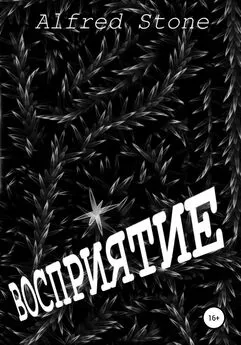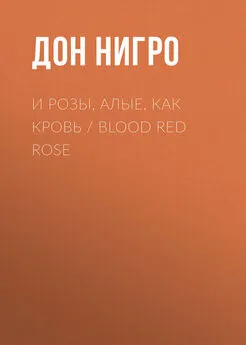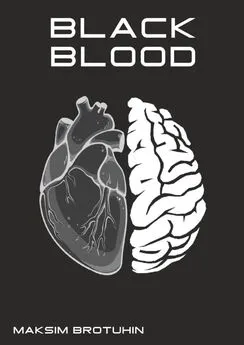Donna Leon - Blood from a stone
- Название:Blood from a stone
- Автор:
- Жанр:
- Издательство:неизвестно
- Год:2005
- ISBN:нет данных
- Рейтинг:
- Избранное:Добавить в избранное
-
Отзывы:
-
Ваша оценка:
Donna Leon - Blood from a stone краткое содержание
Blood from a stone - читать онлайн бесплатно полную версию (весь текст целиком)
Интервал:
Закладка:
The man with the limp arm had moved to the back of the room. Four others stood inside, waiting for them. Two of them smiled in Brunetti’s direction while the others nodded; their greeting was cordial and entirely without menace. Brunetti and Vianello nodded towards them and waited to see who would speak.
The tall man, who had followed them inside, seemed to be their leader, or at least the others kept glancing back and forth between him and the white men. Brunetti was conscious of the spareness of the room, which seemed to serve as both kitchen and dining room. A linoleum-topped counter ran along the back wall. On it stood a double gas ring, a rubber tube running down to a squat gas canister. He remembered this sort of stove from the apartment they had lived in when he was a child and wondered where on earth you could still buy those canisters today.
Large cooking pots stood on top of the burners, and the sink, which appeared to have only one tap, was filled with dishes. The counters, however, were clean, as was the table.
‘What is it you want?’ the tall man asked. His Italian was accented in a way Brunetti could not identify, his voice deep but not at all loud.
‘I want to know whatever you can tell me about the man who was killed last night,’ Brunetti said.
Before the tall one, to whom Brunetti had addressed the question, could answer, the one who had turned away on the stairs said, ‘And we must know about him because we’re black, too?’ Though he was knife-thin, his voice was even deeper than the other man’s, a resonant bass, a voice that could fill a concert hall or hold an audience.
How quickly people learn resentment, Brunetti thought. Who did they expect him to ask about the death of an African, the Chinese? He bit back this question, and turned his attention once again to the older man. ‘I came to you because I thought you might work with him or know him.’
Before he answered, the older man pulled a plastic chair away from the linoleum-topped table, another relic from Brunetti’s youth, and turned it towards Brunetti. He indicated another chair, and the man in the jacket pulled it out for Vianello.
When both men were seated, the older man said something in a language Brunetti did not understand, and one of the others opened a wall cabinet and took down two glasses. He opened a drawer and pulled out a dish towel and wiped the glasses, then set them on the table. From another cabinet he took out a plastic bottle of mineral water, unscrewed the cap, and filled both glasses.
Brunetti thanked him, nodded to the man he now thought of as the leader, and drank half of the water. Vianello did the same. He put the glass down, rested his hands on the edge of the table, and looked at the leader, saying nothing.
At least two minutes passed during which none of the men in the room spoke. Finally the leader said, ‘You say you are a policeman?’
‘Yes,’ answered Brunetti.
‘And you want to know about him?’
‘Yes.’
‘What do you want to know?’
‘I would like to know his full name and where he came from. I would like to know where he lived and what he did for work before he came here. And I would like to know if any of you can think of a person who would want to do him harm or some reason why this could have happened to him.’
The leader considered the series of questions and finally said, ‘It seems like you want to know everything.’
‘No,’ Brunetti said in a normal voice. ‘It’s not everything. I have no interest in how he got here or what sort of papers he had, not unless you think it might have something to do with his death. And I have no official interest in any of you or how you got here or what you do to make a living, so long as it has nothing to do with this man’s death.’
‘No official interest?’ the man asked.
‘As a policeman, I have no interest in those things.’
‘And as a man?’
‘As a man, I know nothing about any of you. I don’t know for certain where you come from or why you chose to come here, and I have no idea how long you intend to stay. I do know, however, that you are said not to be men who have come here to steal or rob or to cause trouble, but that you are here to work, if you can find work.’
‘That is a lot of information to have,’ the man said, ‘for someone who takes no interest.’
‘Yes, it is,’ Brunetti admitted. ‘But you have been here, you or colleagues of yours, for years, and so I know, or I think I know, some things.’ Quickly Brunetti added, ‘I don’t know about your culture, but ours is one where most information passes from mouth to mouth, and each time it passes, something is added to it or taken away from it, so each time it is passed on, the information is changed. So there is no way to know if what you are told, or what you think you know, is true.’ He watched to see that this long speech had been understood. ‘So I have no idea, really, if what I think I know about you, or your friends, is true or not,’ Brunetti said and finished his glass of water. When the man who had poured him the first glass of water stepped forward to refill it, he thanked him and said he had had enough.
The leader turned to the other men in the room and asked them something. While he waited to see what response they would make, Brunetti allowed himself to settle into the room and pay attention to it. He noticed, first, that it was cold, so cold that he was glad he had kept his coat on, and that, for all the disorder, it was clean. The linoleum of the floor was grey, but it appeared to have been recently swept. And from what he had been able to tell, his glass had been wiped as an act of respect, not of necessity. For a long time, none of them spoke, and then the young man in the too-big jeans said something. No one else said a word, and so he went on, his voice growing more heated as he spoke. At one point, he raised his left hand and pointed at Brunetti and Vianello while he said something that could have been ‘police’, but the word was buried in a long sentence that went on for some time and then ended abruptly on an angry note. During all of this, his right arm remained immobile at his side.
The leader spoke to him in a calmer tone, then placed his hand on his shoulder in a gesture that echoed the soothing tone of his voice. The young man, however, remained unpersuaded and let off another stream of fiery words; this time the word ‘police’ was audible twice.
The leader listened with no sign of impatience until the young man was finished, then turned to Brunetti. ‘He says that we cannot trust the police.’
It seemed to Brunetti that the young man had had time to say considerably more than that, though Brunetti had to admit that what he said was probably true. They were in Italy illegally and stood on the street during the day, selling counterfeit bags. They lacked the funds to buy or rent shops, restaurants, or bars, so the resulting protection of wealth would not be offered them: no helpful functionary would intervene in obtaining work or residence permits, no assistance would be offered in getting the Finance Police to ignore those pesky rules about the origins of large amounts of cash; no convenient phone call made the night before planned police raids. Without these civic fairy godmothers, the Africans were liable to suffer the abuse and arrogance of the police, and so their lack of trust seemed an intelligent option.
Brunetti remained silent as he considered all of this, hoping that these men might interpret his silence as a sign of respect for their leader. One of the others, a young man who could not have been much older than Raffi, spoke, but briefly, barely a few words. The leader said something to the next man, the one in the jacket, who answered with a monosyllable, and then to the others, who answered only with quick shakes of their heads.
After a long silence, the leader turned his attention to Brunetti and said, ‘My friends have told me that they would prefer not to speak about this matter.’
Brunetti waited a moment and then asked, ‘Even though they know that I could have all of you arrested?’
The leader smiled, and wrinkles spread across his face in genuine amusement. ‘It is not very clever of you to say that to us, knowing that we could disappear before the other police you call could get here to arrest us.’
Brunetti returned his smile and asked, ‘And don’t you think I could rise up and arrest you all?’
‘And carry us all to prison?’ the African asked amiably. Then, puckishly, he added, ‘All by yourself?’
As they spoke, it had become evident to Brunetti that this man and the young, thin one were the only ones whose Italian was good enough to follow what was said. The others perhaps followed the major words and phrases, but he doubted they could understand much more than that.
‘Where, I am sure,’ Brunetti said with such false menace that it was evident he believed not a word of what he was about to say, ‘we could easily persuade you to tell us everything we want to know.’
At this, the younger man gasped and took a step towards Brunetti, his left hand rising in the air, his right still lifeless at his side. A glance from the older man stopped him, and he stood there, hand still raised, eyes wide with rage, breathing heavily. Vianello had got to his feet with surprising speed and taken a step towards him, but when he saw that the young man had stopped, he retreated to his chair, but he did not sit down again.
The older man turned to Brunetti and said, with real regret, ‘Perhaps it would be best for you not to talk of persuading us to tell you things, Signore.’
Moving very carefully, Brunetti got to his feet and walked over to the young man. Very slowly, he reached up and took his raised hand in his own, bringing it down to waist level. He took his left and covered the back of the young man’s hand with it, holding it prisoner between both of his own. The young man closed his eyes and tried to pull his hand away, but Brunetti held it close.
Finally, when the young man opened his eyes and looked at him, Brunetti said, ‘I ask your pardon for what I said. I ask it of you and of all of the men in this room, and of your dead friend. I was not thinking when I said it, and I was foolish.’ The man tried to pull his hand away again, but the gesture was weaker.
Brunetti went on, still trapping his hands and his eyes. ‘Because of what happened to your friend and because no man should die like that, I want to find the men who killed him.’
He released the young man’s hand and stepped back from him, his own arms at his sides, completely undefended. The young man stared at him but said nothing. At last Brunetti turned to the older man and said, ‘Signor Cuzzoni has given me the keys to the other apartments, and I am going to go and have a look at them.’
‘Why do you tell me this?’
‘Because you are living in these apartments with the permission of the owner, who has given me the keys and told me I can go into them. It would not be correct of me not to tell you what I am going to do.’
‘To ask us?’ the older man said.
‘No,’ Brunetti said, shaking the idea away. ‘Tell you.’
Brunetti glanced in Vianello’s direction and walked towards the door. He turned when he got to it and said, speaking to all of them, ‘My name is Brunetti. If you want to speak to me, you can call me or find me at the Questura.’
The men looked at him, silent as obsidian statues, and then he and Vianello left the apartment.
12
‘Well, I handled that brilliantly,’ Brunetti said as they stepped out into the hall.
‘I didn’t realize what you’d said, that is, how threatening it would sound to them, until I saw him raise his hand,’ Vianello said by way of consolation. ‘It sounded pretty much in line with the conversation you were having with the capo .’
Читать дальшеИнтервал:
Закладка:
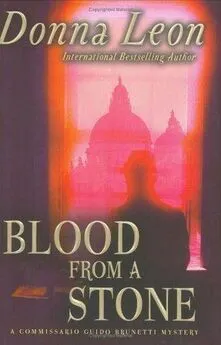
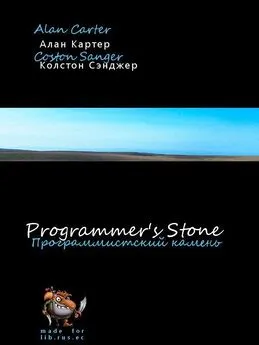
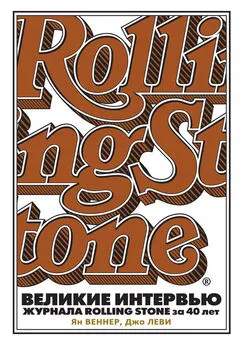
![О Генри - С высоты козел [From the Cabby's Seat]](/books/1083418/o-genri-s-vysoty-kozel-from-the-cabby-s-seat.webp)
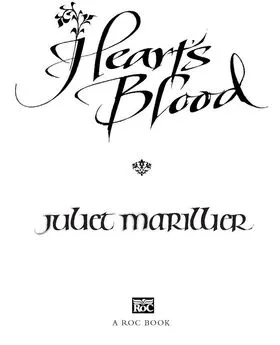
![Инна Владимирова - Blood diamond [litres самиздат]](/books/1149324/inna-vladimirova-blood-diamond-litres-samizdat.webp)
